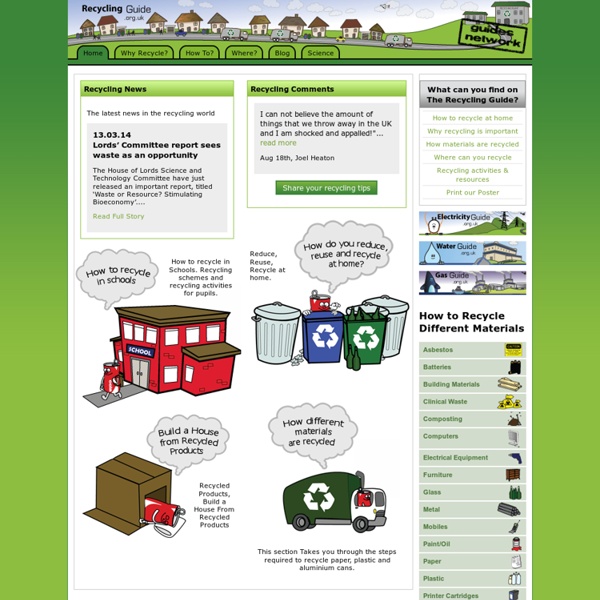



http://www.recycling-guide.org.uk/
Criminal Minds American police drama series The show's original cast consisted of seven star-billed characters: Jason Gideon (Mandy Patinkin), Aaron Hotchner (Thomas Gibson), Elle Greenaway (Lola Glaudini), Derek Morgan (Shemar Moore), Spencer Reid (Matthew Gray Gubler), Jennifer Jareau (A. J. Stamp Collecting Month 2015 – "Our Solar System" - FTfs Here you will find education resources about our Solar System, stamps and stamp collecting, free for use in your classroom. Included are facts and general information for students about the Solar System, including each of the planets, the other celestial bodies in space and Australia’s involvement in many important space exploration events. You will also find a five-lesson unit of work, an Australian Curriculum year level chart, extra cross curricular lesson ideas (focused on the Solar System and also stamps and stamp collecting), activity sheets and extra resources including videos, animations and website links.
Are Coffee Grounds Good For Plants? You only need to walk past a coffee shop in any American city to see that our country loves java. With so much coffee being consumed on a daily basis, it’s encouraging to learn that there is a productive use for all those grinds. Next time you make a cup, save your coffee grounds and add them to the soil in your garden. For best results, use organic coffee if you will be consuming the fruits or vegetables you fertilize. CSI: Crime Scene Investigation Plot summary[edit] Mixing deduction and character-driven drama, CSI: Crime Scene Investigation follows a team of crime-scene investigators, employed by the Las Vegas Police Department, as they use physical evidence to solve murders. The team is originally led by Gil Grissom (William Petersen), a socially awkward forensic entomologist and career criminalist who is promoted to CSI supervisor following the death of a trainee investigator.
'Get Growing!' Environmental Education Kit - National Tree Day Planet Ark Environmental Foundation is delighted to announce the release of its 'Get Growing!' Environmental Education Kit for schools. This kit has been produced by Planet Ark in association with the Australian Association of Environmental Education as an education and learning resource for teachers and students participating in Schools Tree Day and National Tree Day. 14 Genius Ways To Recycle Used Coffee Grounds Coffee is good for more than just waking you up in the morning! Take a look at this list and find the perfect recycling tips and tricks so you can enjoy your coffee again – even after you’ve finished enjoying your morning cup of Joe! You’ll never throw your away your used coffee grounds again after seeing just how many things you can do with them! How To Use Old Coffee Grounds In the Garden: 1. Pest Repellent
Gregory House In the series, the character's unorthodox diagnostic approaches, radical therapeutic motives, and stalwart rationality have resulted in much conflict between him and his colleagues.[3] House is also often portrayed as lacking sympathy for his patients, a practice that allots him time to solve pathological enigmas. The character is partly inspired by Sherlock Holmes.[4][5] A portion of the show's plot centers on House's habitual use of Vicodin to manage pain stemming from a leg infarction involving his quadriceps muscle some years earlier, an injury that forces him to walk with a cane. This addiction is also one of the many parallels to Holmes, who was a habitual user of cocaine.[6] Character history[edit] Approximately ten years before the beginning of the series, House entered into a relationship with Stacy Warner (Sela Ward), a constitutional lawyer, after she shot him during a "Lawyers vs. On a routine clinic visit, a police detective, Michael Tritter, is seen by House.
CSIRO Try your hand at these fun and easy science experiments and activities for kids. Explore science concepts and discover the world around you using simple ingredients found in the home or at school. Safety for DIY science activities and experiments CSIRO takes safety seriously in all of our activities and experiments. While we ensure all activities and demonstrations are as safe as possible, there are some precautions which all young scientists need to keep in mind. Biology activities and experiments Inside you, inside a shell or inside a forest - explore the insides of life with these fun biology activities and science experiments you can do at home or with your students in the classroom.